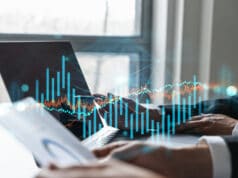Anyone who’s known about the markets for any length of time has heard of George Soros, one of the greatest traders in history. He is most known for ‘breaking the Bank of England’ in 1992 and being one of the wealthiest people on the planet.
The now 90-year old multi-billionaire is a legend who has gained immense confidence in all his years trading. Soros has many insightful quotes attributed to his name, but there is an interesting one that many might not know.
In August of 1995, Soros’ biography entitled ‘Soros on Soros: Staying Ahead of the Curve’ was released, a body of work detailing Soros’ personal life, financial concepts, and political stance.
The book is mostly in an interview-style with two narrators. Soros is asked somewhere in the book whether his money management skills are mostly imagination or analytical ability.
Soros gives an intriguing response serving as an essential lesson in this article: “I think my analytical abilities are rather deficient, but I do have a very strong critical faculty. I am not a professional security analyst. I would rather call myself an insecurity analyst.”
So, what can traders learn from this quote, and why is it so crucial? Let’s find out.
Dealing with being wrong in forex
After the quote, the interviewer asks Soros what he meant by that statement. Soros suggests that despite being an analyst, he is well aware he may be wrong, hence the insecurity.
Similarly, traders should be critical of themselves by looking for the flaws in their positions once they’ve been opened. Of course, it doesn’t necessarily mean someone would close their trades, although some can certainly do this based on a logical sign.
Instead, a trader can have confidence in the likelihood of being wrong and be fully accepting of it. It might sound paradoxical to always assume one is going to be wrong in their trades.
Yet, one fear any successful trader learned to deal with is wrong. Humans are naturally wired to feel superior and be correct in all situations. Unfortunately, it doesn’t translate very well in the markets because no individual controls price direction.
It is one of the main reasons why no so-called holy grail exists. Therefore, being wrong (and probably often) and having the ability to take a loss gracefully is a skill any trader must master ASAP to stand any chance of long-term success.
Overconfidence is one of a trader’s biggest Achilles heels
The possibility of being wrong isn’t something most traders think about when trading. As briefly mentioned, people are naturally inclined to feel right, but countless people blur the line between confidence and overconfidence.
This is especially the case on social media, where communities discuss, share strategies and trading opportunities. Overconfident traders will begin to have immense selection bias by purposefully seeking information aligning with their pre-existing beliefs and ideas with little regard for any conflicting data.
One method to avoid overconfidence is staying away from any social settings where traders are sharing their analysis. Ultimately, a trader should only be solely focused on what they are thinking before placing a position without any social proof.
Another major issue with overconfidence is how traders place too much significance on one random position rather than having a holistic bigger picture. Even professional gamblers wouldn’t bet their entire bankroll on a single event, and neither should traders.
A profitable trader isn’t just thinking about the possibility of being wrong now but losing multiple positions in a row. Once they’ve established their maximum drawdown and have a favorable risk-to-reward ratio, that is the formula for making profits in the long run.
Having confidence, but not overly so
It goes without saying any trader looking for consistent success needs a strong level of conviction in everything they do. One must always be prepared for any possible outcome, especially in an uncertain environment like forex.
One ideology also in line with Soros’ thinking is from American technology forecaster Paul Saffo, where he sums up forecasting as ‘strong opinions, weakly held.’ Saffo describes the idea of forecasting, which is what traders do, as an attempt to recognize a range of possible outcomes instead of absolutes.
The outcomes in trading aren’t just whether someone closes a trade in a loss or profit but also deals with what occurs during a position.
Using a context-based approach
It’s common for traders to only focus on one possible outcome through a ‘tunnel vision’ without considering the opposing side. Hence, it is unlikely for them to see how they could be wrong or not have the desired profit they seek.
It’s best to take a context-based approach by considering an example. Let’s assume a trader has entered into a position and, fortunately for them, it has moved some distance in gains but not near their profit target.
Several things can happen at this point. As we know, prices will fluctuate a lot more often than most would desire. Someone with selective attention may only assume the market will continue to move in their favor with little or no retracement.
However, a context-based approach will instead consider that perhaps price might still retrace against the trader to some extent. Rather than presuming price will continue in one’s favor smoothly, a prudent trader will look for signs which might suggest otherwise, such as fundamental news, price action, correlation, etc.
The point is never to discount the market might not go as far as one would desire and employ the necessary trade management.
Final word
George Soros’ quote deals with many issues facing traders: fear of being wrong, confirmation or selective bias, and overconfidence. In summary, no matter someone’s intelligence, markets will not always agree with what a trader wants to happen.
It’s often said the market is always right; it’s never the traders themselves who are. No one has the power or control to fight the market. Without understanding such concepts, it’s easy to see how countless quickly lose money trading because of stubbornness, arrogance, and ignorance.




